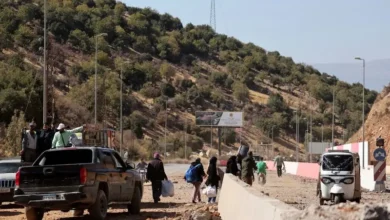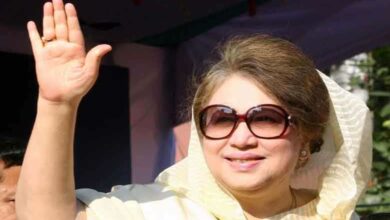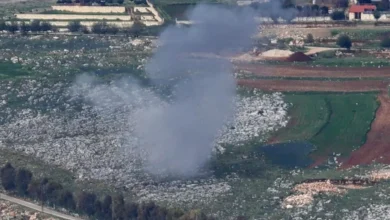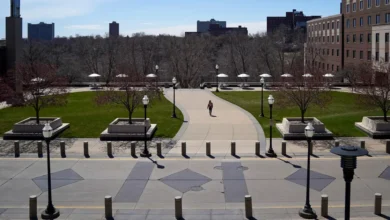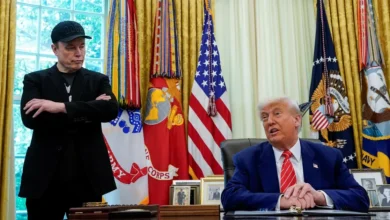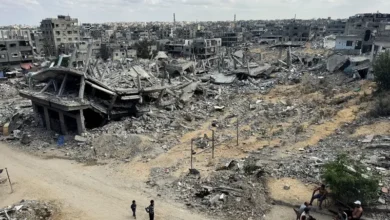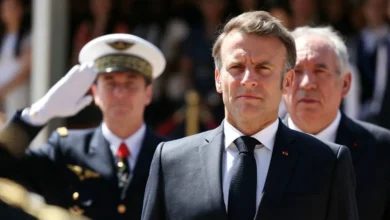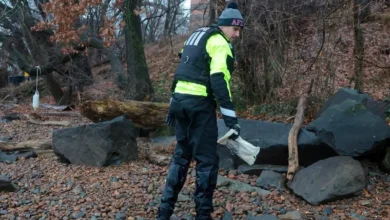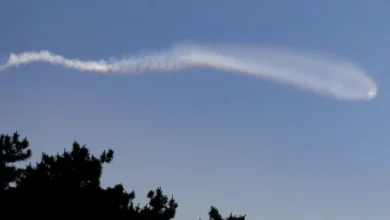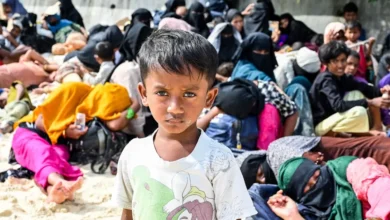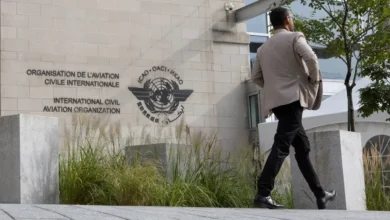Lebanon’s President Aoun says Israeli attack on Beirut violates ceasefire agreement
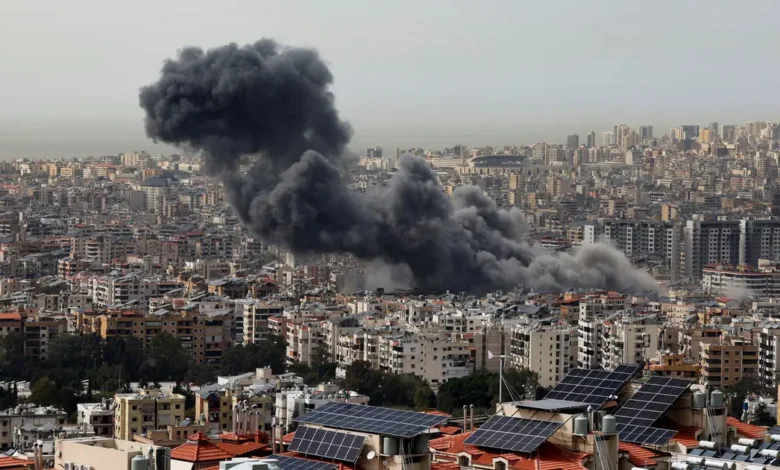
Lebanon’s President Joseph Aoun told French counterpart Emmanuel Macron on Friday that Israel’s attack on Beirut’s southern suburbs was a continuation of Israeli violations of a ceasefire deal between Israel and Hezbollah, his office posted on X.
Aoun has been meeting Macron during a visit to Paris.
For his part, French President Emmanuel Macron said on Friday strikes on Beirut this morning were “unacceptable” and a violation of the ceasefire.
Macron was speaking alongside the Lebanese president after the two leaders met at the Elysee palace in Paris to discuss economic reforms and efforts to stabilize the country as a fragile truce with Israel increasingly comes under pressure.
Macron said that there was no activity justifying Israel’s strikes and that he would call US President Donald Trump and Israeli Prime Minister Benjamin Netanyahu to discuss the attacks.
“The framework agreed upon by Lebanon and Israel was not respected today by Israel unilaterally and without us having either information or proof of the triggering event,” Macron said.
Israel’s air force conducted a large strike on a building in the southern suburbs of the Lebanese capital on Friday, a Reuters reporter said, the first heavy bombardment there since a truce deal in November ended a war between Israel and Hezbollah.
Israel’s military said it hit a drone storage facility in the area allegedly belonging to Iran-backed armed group Hezbollah.
The strike, which was heard across Beirut and produced a large column of black smoke, followed an evacuation order by the Israeli military for the neighborhood and three smaller targeted drone strikes on the building intended as warning shots, security sources told Reuters.
The evacuation order sent residents of the area into a panic, rushing to escape on foot as traffic clogged the streets out of the area, Reuters reporters in the area said.
Beirut’s southern suburbs, a Hezbollah stronghold known as Dahiyeh, were pounded last year by Israeli strikes that killed many of the group’s top leaders, including its powerful chief Sayyed Hassan Nasrallah in a September air attack.
A US-brokered truce in November put an end to the fighting and mandated that southern Lebanon be free of Hezbollah fighters and weapons, that Lebanese troops deploy to the area and that Israeli ground troops withdraw from the zone.
But the truce has been shaken over the last week by two cases of outgoing fire from southern Lebanon – several rockets fired on March 22 and another set fired on Friday morning.
Israeli Defense Minister Israel Katz said the Lebanese government bore direct responsibility for the attack and said that as long as there was no peace in Galilee “there will be no peace in Beirut either.”
Israeli ministers have vowed to ensure that the tens of thousands of Israelis who evacuated their homes in border areas when Hezbollah began bombarding the area in 2023 would be able to return safely.
But with more Israeli units deployed around Gaza, where a separate ceasefire has also broken down, it remained unclear whether Israel was prepared for any wider intervention.
Hezbollah denied links to either attack. No other group has claimed responsibility.
But Israel’s statement confirming its raid on Dahiyeh said that the Friday morning rocket fire “constitutes a blatant violation of the understandings between Israel and Lebanon and a direct threat to the citizens of the State of Israel.”
It added that the Lebanese state bears responsibility for upholding the agreement.
